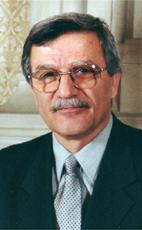Madam Speaker, I suppose I could start by wishing everyone a happy 1995. I wish everyone prosperity.
In this House sometimes we educate others, sometimes we get educated from discussions such as this. I welcome this opportunity to discuss Bill C-44 today in this House.
I was watching television on January 16 which happens to be Martin Luther King's birthday in the United States. In one of his speeches he said that a first class nation deserves first class citizens. This bill calls for Canada being a first class nation, which it has been called for the last two years by the United Nations. This is a first class bill for first class citizens, especially those who are new arrivals in this country. They know they are going to start a new life with their family in this new country which they have adopted.
I was following the comments of both of the opposition parties, the Bloc Quebecois and the Reform Party. Obviously the Bloc Quebecois is telling us that we are not going far enough. I know its point of view because it sits with us on the Standing Committee on Citizenship and Immigration. The Reform Party spokesman said that it does not go far enough. We are confused as to how far to go to satisfy the Bloc or how far to go to satisfy the Reform Party. That is why as good Liberals we always support the middle ground because the middle ground is where
the average Canadian's mentality rests. That is where average Canadians want us to be.
When we talk about immigration we always refer to negative things, the cup is always half empty. Let us look at the positive side of immigration.
Earlier I asked my colleague if he could give us the number for the 24,000 deportees which he mentioned. He could not give me a number. I would think the number is not more than 625. For 625 criminal refugees it is fair not to raise the figure to 24,000. It gives the impression that immigrants are all criminals, that they all have criminal records or that they intend to commit a crime when they adopt Canada as their new homeland.
This bill makes six basic points. Earlier the Reform Party spokesman said that this is a good bill but does not go far enough. As was mentioned earlier, the job of the opposition is to oppose. That is what it is paid for. We on this side are paid to put forward programs, which we are doing. The six points that were mentioned by the hon. member go far enough.
We should not take the approach that we are going to build a cement wall like the Berlin wall against refugees coming in, saying that anybody coming in from a certain part of the world is a criminal or intends to commit a crime in this country. That is not the way we do business in Canada. That is not the way we do business in western society.
I am sure the member agrees with me that we cannot put police officers with machine guns at every step of the way who will say: "You look different than I do, so you had better stay out because you look like a criminal to me". We cannot do that.
The hon. member from the Bloc Quebecois says that he hopes after this bill is passed that someone will challenge this bill in the courts. I hope they will because we want to do the best we can. We want to make sure that we become first class citizens in this first class country.
That is the responsibility we have and we take it very seriously. I hope they will share that responsibility with us and support the bill. If there are improvements or suggestions to be made, we should do that as we go along. The system allows that to be done. For the time being we should support this bill because it is the best we can do under the circumstances.
Before we arrived at this bill we had one year of consultations. I know the Bloc Quebecois says that consultations were not good enough because of a, b, c or d. The Reform Party says they were not good enough because x, y or z and because 29 million people did not have a chance to come forward to speak.
In my riding I organized two or three meetings to talk about immigration. People spoke up. Some said yes and some said no. Some said it was good policy and others said it was bad policy.
I sent out questionnaires and 1,100 people responded. I passed those questionnaires on to the minister. I am happy to say that most of the concerns presented to me by my constituents are addressed in this bill.
I am very happy to support this bill. I will do whatever I can to support this bill because it is important. We must have it because we have to go forward and be forward looking. We cannot be negative on everything new planned by this government.

